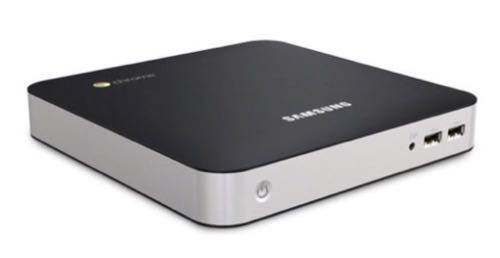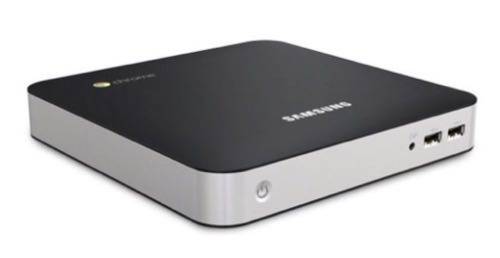
The business value of the recently unveiled Chromebox cloud-based desktop device from Samsung and Google is hard to calculate. Aimed at the enterprise, the Chromebox is really a better fit for the small business and retail sectors.

The Chromebox’s $329 price point and marketing seem to suggest that Google is making an enterprise play with the monitor-less ChromeOS device, trying to attract corporate shops with a one-time $150 lifetime support and upgrade plan and desktop-as-a-service functionality (DaaS) via partner nGenx.
But is this really the right fit? Or would Chromebox – a device designed to be completely connected to the cloud and run all applications in a browser instead of natively in an operating system – find a more welcoming home in the small business space?
The Security Issue
For one thing, there are strong indications that cloud security is still a deal breaker amongst enterprise IT directors. A recent survey of 800 IT managers by Intel showed that even for private clouds, lack of control, data boundary configuration and the security of network packets rank as big hurdles blocking wider cloud adoption.
Add compliance and business-process requirements on top of that, and enterprise adoption of Chromebox and similar devices might not be as simple as Google would want you to think.
For smaller businesses, though, the risks may be more likely to be outweighed by the benefits.
Living Without IT
For instance, small businesses and retail stores often live without the benefits of a true IT staff. Computing decisions are often the bailiwick of the company nerd – or the sales people at the nearest big-box electronics store. And even when a smaller company has a dedicated IT staff, daily maintenance and upgrade cycles often delay implementation of longer-term projects or big-picture concerns, like disaster recovery.
And that’s where the Chromebox can make a difference. Results of the 2012 AT&T Small Business Technology Poll showed that “while nearly three-fourths (71%) of small businesses feel it is important to recover computer data in the event of a disaster, less than one-third (31%) use the Internet or computer network to send data to a remote location.”
Because data on the Chromebox is stored remotely on Google’s servers, the risk of losing data plummets. Even if a particular Chromebox is lost or damaged, a simple sign-in to the same account with another device will instantly regain access to the data.
SaaS and DaaS
Addressing these kinds of concerns for small businesses is exactly where SaaS and DaaS could really shine. Always-on, always-updated software preconfigured and relatively unbreakable by staffers is a pretty attractive option for small companies. In fact, it may be the only way small businesses can leverage advanced technology without creating an expensive support infrastructure.
The Chromebox is not quite there as a small business solution yet. That $329 price point remains too high (with the $150 support fee tacked on, it’s higher than entry-level desktop PCs). And even though small businesses don’t have as many compliance hoops to jump through, security is still just as big an issue for mom-and-pop stores as it is the enterprise. (Of course, most smaller shops aren’t doing much about security on their own.) And many observers had similar hopes for the first-generation Chromebooks, but they didn’t pan out.
But as Chromeboxes become more affordable – and if Google can help customers establish secure Internet connections and adapt their business processes – Chromeboxes would be very useful small business/retail devices. The available Google application set with the capability to add Windows applications with the nGenx DaaS software would easily meet most of their needs. If Google could eventually add preconfigured setups (point-of-sale tools for a retail account or accounting software for a bookkeeper), it would be an even sweeter option.
Even without configurations for specific uses, Chromebox and devices like it have a lot to offer small businesses without IT teams. With easily managed hardware, always-current applications and minimal setup needs, Chromebox could be a low-impact, high-result solution for many companies.










